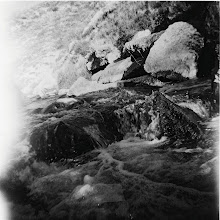As an individual ages their imagination grows old and dies. For most people their imagination dies before their bodies. This is seen in Joyce's story through Gabriel's aunts. As one said in her toast at the dinner party, "A new generation is growing up in our midst, a generation actuated by new ideas and new principles. It is serious and enthusiastic for these new ideas and its enthusiasm, even when it is misdirected, is, I believe, in the main sincere. But we are living in a skeptical and, if I may use the phrase, a thought tormented age. "(599). Ideas are always changing. The tendency is to assume an idea that is not yours is wrong. The beauty of the imagination is that it constantly grows and explores. But as we become immersed in society and its rules, our imagination is put in a box. In that box imagination shrinks and dies, like a wrinkly old woman.
We do not kill our own dreams; they are killed by the people we are surrounded by. It is their ideas of right and wrong, possible and impossible that make or break us. When a person dreams they become excited. This excitement permeates their life. So much of life is about your attitude. If you believe, anything is possible. But society layers us with unbelief. This embitters believers. Bitterness slowly poisons dreams until they die. The caretakers daughter epitomizes this form of death. This excerpt portrays her bitterness, "-Tell me, Liley, he said in a friendly tone, do you still go to school? -No, sir, she answered. I'm done schooling this year and more. -O, then, said Gabriel gaily, I suppose we'll be going to your wedding one of these fine days with your young man, eh? The girl glanced back at him over her shoulder and said with great bitterness: -The men that is now is only all palaver and what they can get out of you." (585). Circumstances have embittered her towards life. This bitterness, this skepticism, has murdered her dreams.
Death is generally a very sad, depressing topic. So everything that seems light and full of life would be the antagonist of death. The setting of this story is a dinner party. These parties are supposed to be full of light, laughing, and happiness. This particular dinner party is none of those. There is an underlying tension rippling from the beginning when the caretakers daughter shows in the guests. Gabriel emits a sense of anger and frustration towards life, throughout the party. Mr. Browne seems to be trying to drown his regrets with alcohol. The one lady leaves early because Gabriel offends her. The actual dinner is dry and formal. The toasting leaves a feeling of melancholy. "The coffin, said Mary Jane, is to remind them of their last end."(598). This is not a party. This is a funeral.
Decomposing bodies make great fertilizer. But what does decomposing spirit make? When the spirit slowly decomposes, it emits a sense of hopelessness, a sense of stagnation. The grass on the other side is always greener. This concept seems to be the same with people. It is always easier to say that somebody else has it made. With this thought comes stagnation. Focus turns from what we can change, to what is wrong. "He would fail them just as he had failed the girl in the pantry. He had taken up a wrong tone. His whole speech was a mistake from first to last, an utter failure."(586). This starts a downward spiral. The lower you spiral the closer you come to spiritual death. The only cure for this wallowing mess of a stagnant spirit is to find hope.
The death of hope, is the death of all. Nearing the end of the story Gabriel has a brief glimpse at this hope. He believes that he could have true love with his wife. For a moment he is rejuvenated and excited. At this point Joyce introduces Michael Furey. The story of Michael Furey emphasizes the fact that Gabriel is alive but he doesn't live. Furey was truly the only person in this story to live. He loved and acted upon that love. Regrets are made by inaction. Michael Furey died, but he died living life. He died without regrets. Gabriel and the others are alive, but when it comes to actually living life, they are dead. "His soul swooned slowly as he heard the snow falling faintly through the universe and faintly falling, like the descent of their last end, upon all the living and the dead."(610).
Like the characters in this story we are bound by society. Day by day we are growing more and more dependent upon societies boundaries. But if we live too much by society we will not be living at all. Joyce shows us this danger. Life is meant to live, and sometimes we just need to make our own rules. The key to living is understanding society, but abiding by your inner self.
Work Cited
Joyce, James. “The Dead”. Literature reading fiction, poetry, and drama. Robert DiYanni McGraw Hill 2007. 584-610. Print

No comments:
Post a Comment